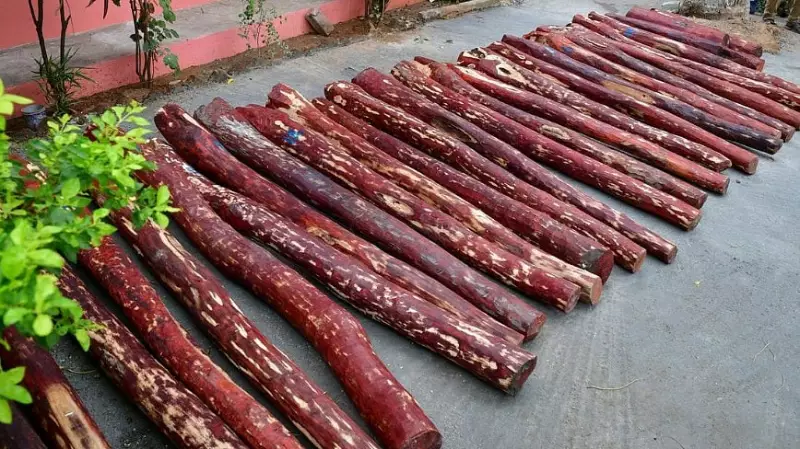
In a significant move for wildlife conservation, India has launched an ambitious people-powered initiative to protect the endangered red sanders tree species. The National Biodiversity Authority has given its official approval to a comprehensive proposal that aims to revitalize the population of these precious trees.
Massive Three-Year Conservation Program
The National Biodiversity Authority granted its crucial approval in March 2025 for a groundbreaking project proposed by the Andhra Pradesh State Biodiversity Board (APSBB). This comprehensive program sets forth an ambitious target of raising one lakh red sanders seedlings over the next three years.
The conservation effort comes with substantial financial backing, with the project allocated Rs 2 crore to ensure its successful implementation. This significant investment demonstrates the government's serious commitment to preserving this valuable species for future generations.
Why Red Sanders Needs Protection
Red sanders, known scientifically as Pterocarpus santalinus, faces severe threats from illegal logging and habitat destruction. The tree species, endemic to the Eastern Ghats region of Andhra Pradesh, has been classified as endangered due to excessive exploitation for its valuable red wood.
The wood from red sanders trees holds immense commercial value in international markets, particularly for manufacturing high-quality furniture, musical instruments, and traditional medicines. This high demand has led to rampant smuggling activities, pushing the species toward the brink of extinction.
Community Involvement: The Key to Success
What makes this initiative particularly promising is its people-powered approach. The program emphasizes community participation in conservation efforts, recognizing that local involvement is crucial for long-term success in protecting endangered species.
By engaging local communities in the cultivation and protection of red sanders seedlings, the program aims to create both environmental and economic benefits for residents of Andhra Pradesh. This strategy not only helps conserve biodiversity but also provides sustainable livelihood opportunities for people living in the region.
The approval of this comprehensive conservation plan marks a crucial step forward in India's efforts to protect its rich biological heritage. With proper implementation and continued community support, this initiative could significantly contribute to reversing the decline of this precious tree species.





